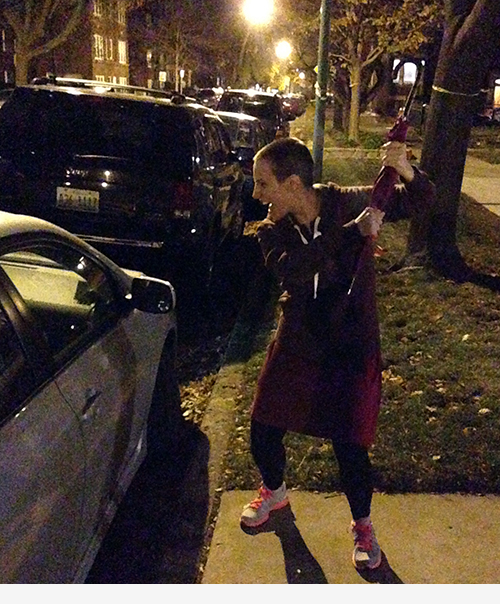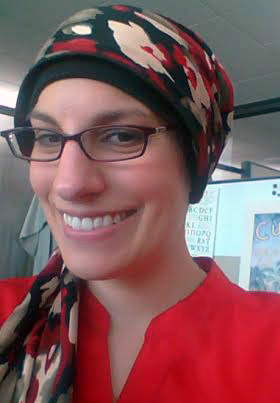My sister, who, like most of us, procrastinates out of anxiety, once hung a sign over her workspace that said, “Stick to the plan (First, make a plan)”
I always liked the sign, but recently, I’ve finally fully grokked what it means, and how to live by it.
It happened in January, when I hit a wall of sorts. It was the end of the period of time during which I had three releases in three months, during which I had, against my will, more or less, worked through both Thanksgiving and Christmas vacation, during which I had desperately tried to do everything I needed to do to have the career I imagined I wanted. Only it didn’t feel like what I wanted. It felt like a sheer, dead weight, a yoke, and an ankle chain.
It is the writer’s job to listen, to stay open and let ideas come to us, to entertain the possible and impossible, to let imaginary people tell us their stories and to be convinced by them so we can convince our readers too.
But this talent of ours, for staying porous to possibility, can become a liability when we come out of our caves into the real world. January was not the first time this year—by which I mean the year since I crossed the line from “aspiring” to “author,” that I have found myself so totally overwhelmed that my strongest impulse was to quit. Throw in the towel, open a chocolate shop, and revert to reading, not writing romances.
What all those moments had in common was that I had become too reactive—too porous—to everything around me. I lost track of who I was, what I was doing. I’d lost track of who was driving the bus.
In the first year of author-dom, you are barraged by new inputs. Everyone has an opinion. Up to the point when you first get an agent or sell a manuscript, you have been fully and completely in charge of your destiny. But that changes, almost overnight. Suddenly you have an agent, an editor, a copy editor, a cover artist, possibly a publisher, certainly critique partners and beta readers who care passionately about helping you have the career they want you to have—or, most generously, the career they believe you want to have. And that’s not all. Facebook and Twitter have an opinion, not to mention Instagram, Google+, Tumblr, and Pinterest. Reviews, of course, are nothing but opinion. Even deadlines, which seem in some way to be neutral, are an opinion.
Some of these opinions are explicit—This is your brand, Romantic suspense doesn’t sell, We want to grow you this way, We set up this promo opportunity for you. Bad reviews, of course, are explicit, as are good reviews, and no less destructive. Then there are implicit opinions out there in the community, as faint as smoke signals: The more books you write in the shortest amount of time, the better, If you want to Twitter to work for you, you have to be on it at least a couple times the day, Facebook is best if you make it really personal, Vampires are so turn-of-the-century, Write tropes.
There are the opinions that come hidden in conference opportunities, invitations to writer getaways, a request to critique someone’s book, the realization that someone else is doing something awesome—a giveaway, a Facebook party, travel to give a talk. The recipe for what someone else’s success looks like is its own opinion. And some of these opinions are buried so deep in our psyches, we don’t even recognize they’re there—leftover needs to please parents, a set of church teachings that oppose our own artistic impulses, the need for popularity, the desire to be tough, the conviction that artists stand up for themselves and don’t sell out.
And finally there are the darkest, most unwanted opinions, the voices in the lizard brain—Who’s on Twitter, Did I read everything, Did I respond, Am I a good friend, Have I done right by them? Is so-and-so selling better? Does so-and-so like so-and-so more?
That’s a fuckload of noise.
In the midst of all that noise, it is so hard, so terribly hard, to write a book, let alone a good book. It is very hard to revise it to make the best possible book, to decide who should publish it, to decide even whether it should be self-published or traditionally published, whether you need an agent, how much and where to promote your book, how far out to contract books, which deadlines to give, how much of your life to spend writing.
Under these conditions, you can’t stop reacting, because there is so much to react to, and you feel that you cannot miss an opportunity or take a wrong step.
But the reason you feel that way is not because there is any real danger of missing an opportunity or taking a wrong step. It’s because you are in all-out reaction mode, because you want desperately to stick to the plan, but you do not yet know what the plan is.
You need a place to come from, proactively, a yardstick with which to measure whether any given course of action fits what you—the core writer you, the one that got into this for all the right (and by right I do not mean morally or ethically, but spiritually, as in those that are true to you) reasons.
So. Shut it off. Shut it all off. Not forever, because living in a cave will make you even crazier than living in a circus, but shut it off long enough to make a plan. Make a plan that draws you back down into the core of who you are and why you are doing this—money, popularity, sheer love of writing, a compulsive need to tell the stories you hear in your head, a desire to please Uncle Joe. Remember what it is. Remember what you’re doing, and articulate a plan that will make it possible to do that, and only that, that core thing. Let that—your real reasons for writing—speak louder than everything else to you.
This is, of course, easier said than done. The noise is loud, and you have forgotten what the core reason for doing this really is. So I recommend you start by making a list of all the reasons you’re doing it, and then put them in priority order. Maybe Uncle Joe’s first, maybe money is first, maybe it’s that crazy, intoxicating flow state in which you don’t actually remember anything you’ve written. Getting on the USA Today Bestseller list is a different reason than having enough money to send your kids to college, even if, at first blush, they look interrelated. Whatever it is, acknowledge it, be true to it, be honest with yourself about it.
Just having this list will make it so much easier to say no to the voices. No, bad review, I don’t need to hear what you’re saying, because you are not relevant to what I do next. No, I don’t care that beta heroes aren’t selling. No, I don’t need to do that promo opportunity, because it doesn’t feed my soul.
It will also make it easier to say yes. Yes, that will help me make money, and if I am being honest with myself, money is big, bigger than I wanted to be. Yes, I want to be on Twitter today, because part of why am doing this is the people, the conferences, the camaraderie. Yes, please, I want to be your friend, I have always wanted to be your friend, even when I thought you were so much better than me that I didn’t think it was worth trying to get your attention.
Most of all, it will make it easier to distinguish between yes and no, because it will make it easier to remember what matters, and why.
So do it. Stick to the plan.
First, make a plan.























